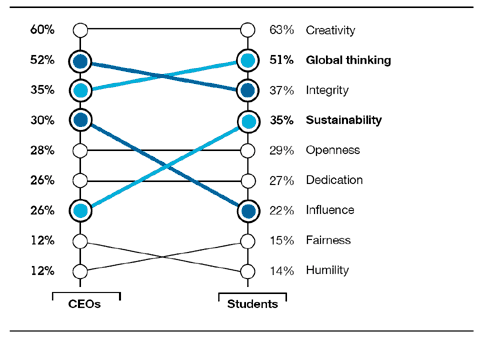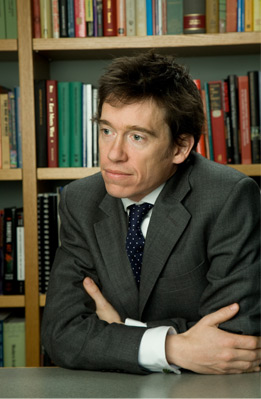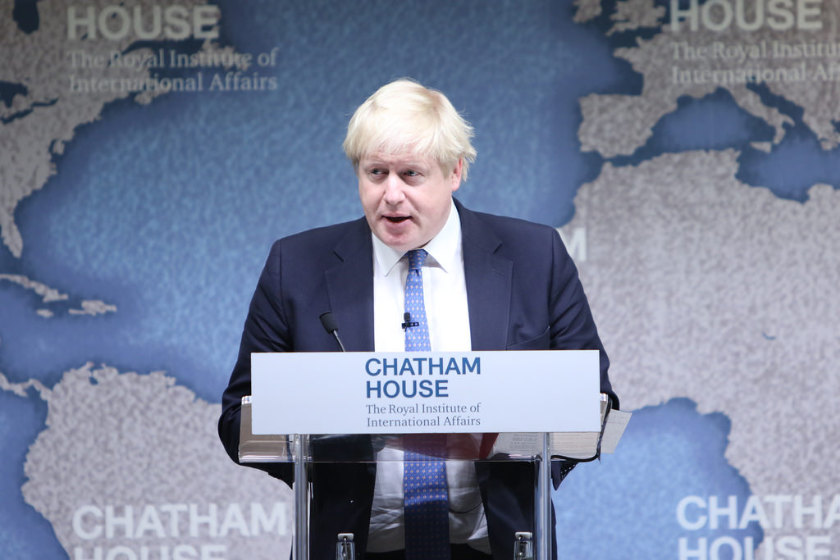 Loving this excerpt from Nancy J. Adler’s ‘Leading Beautifully: the Creative Economy and Beyond’ in the Journal of Management Inquiry, vol. 20, pp. 208–22, at p. 211, which my fellow Medinge Group director Nicholas Ind referred to me:
Loving this excerpt from Nancy J. Adler’s ‘Leading Beautifully: the Creative Economy and Beyond’ in the Journal of Management Inquiry, vol. 20, pp. 208–22, at p. 211, which my fellow Medinge Group director Nicholas Ind referred to me:
McGill University strategy professor Henry Mintzberg asked the people in his native Quebec to see the world as artists view it, rather than as normal consumers of the public media. Immediately prior to the last referendum that would decide whether the Province of Quebec would separate from the rest of Canada, Mintzberg challenged the electorate to turn off their radios and TVs, look out their windows, and ask themselves: Do our French- and English-speaking children play together? Do we invite each other into our homes? Do we work well together? Mintzberg was asking his neighbors to view Quebec society through their own eyes and to not let themselves be blinded by politicians who were insisting that people from different cultural and linguistic groups so dislike each other that they cannot live together. He encouraged his neighbors to vote based on their own data. Mintzberg was particularly effective in getting the people of Quebec to see the beauty in their well-functioning, multicultural society, a beauty that had been obfuscated by a profusion of political myths that were broadly perpetrated and perpetuated by politicians and the media alike.
A few points:
I’ve heard some of the arguments in the Republican primaries, and to a non-American, the time wasted by PACs on attack ads seems a waste. They also seem rather foreign to a New Zealander. Sure, we attack the opposition, too, but not with the sort of negative undertone exhibited there.
The more time spent on attacks, the less time spent on solutions.
Though you wonder if the institutionalization and the deals done behind closed doors can ever be undone, and I don’t mean just the Americans.
 I’ve also been reading Michael Lewis’s latest book, Boomerang: the Meltdown Tour—and can happily report to Mr Lewis that I have bought three copies (the one in New Zealand at twice the price of what I paid in India). While most of it covers the global financial crisis, he spends some time with former California governor Arnold Schwarzenegger (original emphasis):
I’ve also been reading Michael Lewis’s latest book, Boomerang: the Meltdown Tour—and can happily report to Mr Lewis that I have bought three copies (the one in New Zealand at twice the price of what I paid in India). While most of it covers the global financial crisis, he spends some time with former California governor Arnold Schwarzenegger (original emphasis):
… “When you want to do pension reform for the prison guards,” he says, “and all of a sudden the Republicans are all lined up against you. It was really incredible and it happened over and over: people would say to me, ‘Yes, this is the best idea! I would love to vote for it! But if I vote for it some interest group is going to be angry with me, so I won’t do it.’ I couldn’t believe people could actually say that. You have soldiers dying in Iraq and Afghanistan, and they didn’t want to risk their political lives by doing the right thing.”
He came into office with boundless faith in the American people—after all, they had elected him—and figured he could always appeal directly to them. That was his trump card, and he played it. In November 2005 he called a special election that sought votes on four reforms: limiting state spending, putting an end to the gerrymandering of legislative districts, limiting public employee union spending on elections, and lengthening the time it took for public school teachers to get tenure. All four propositions addressed, directly or indirectly, the state’s large and growing financial mess. All four were defeated; the votes weren’t even close. From then until the end of his time in office he was effectively gelded: the legislators now knew that the people who had elected them to behave exactly the way they were already behaving were not going to undermine them when appealed to directly. The people of California might be irresponsible, but at least they were consistent.
This is just at state level. It’s a lot worse at the national level there. And yet certain politicians here have a hankering to emulate this behaviour.
Let’s hope that when we next get a chance to elect our officials, we’ll keep these scenarios at the back of our minds—and stay away from them. Let us, instead, look at all the good we can do—and find ways to unite, rather than divide, people. And also, let us ensure that democracy continues to be accountable to the people, rather than the same old, same old “business as usual”.







